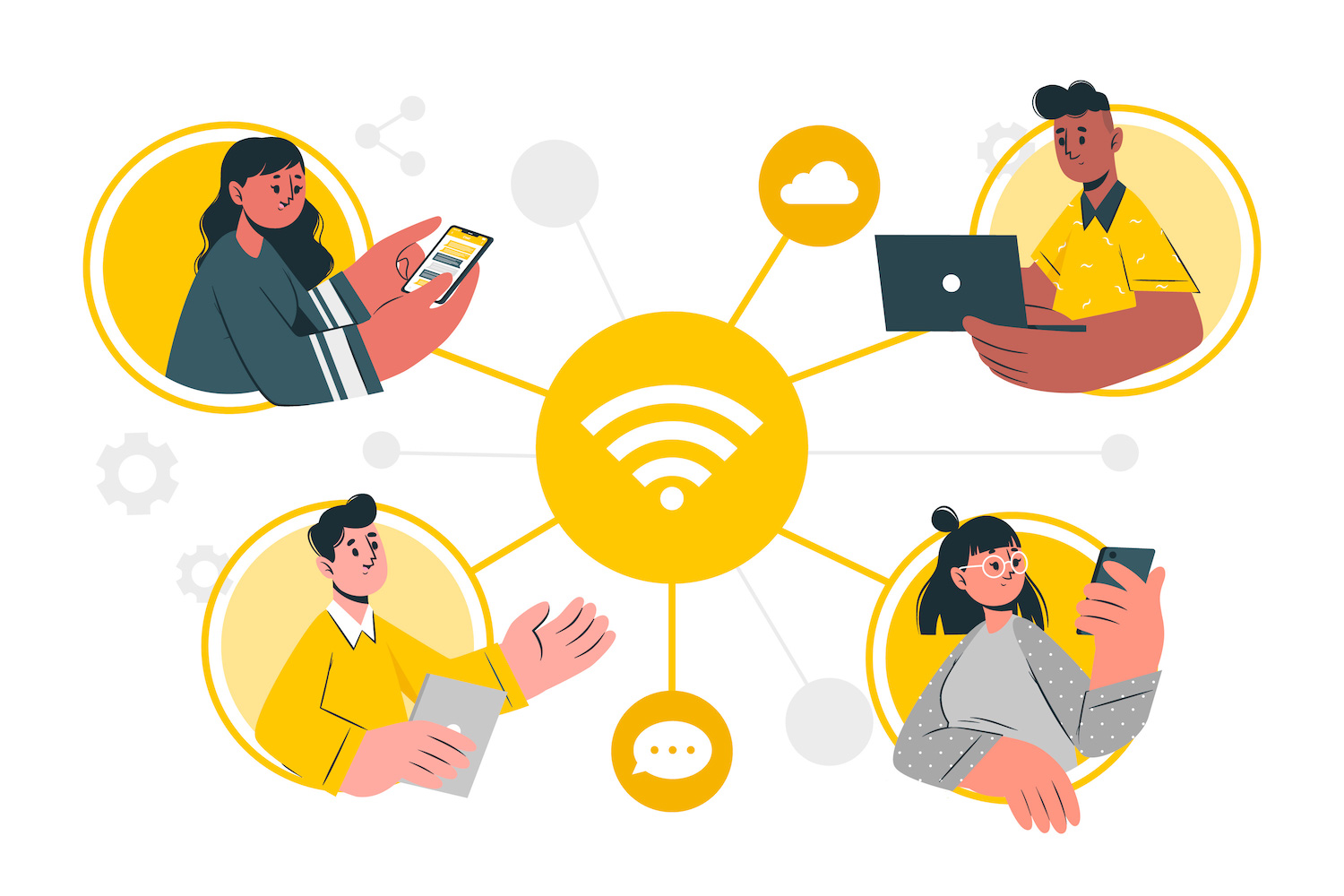Executives, let's redefine connections in the workplace.
The month I've been involved in an active debate on Quiet quitting during the World Economic Forum's annual gathering in Davos. Workforce dynamics are changing quickly I'm amazed that decision-makers have been asking plenty of appropriate questions. How do you balance the advantages and drawbacks and the potential and risks associated through AI and the necessity to create an environment that's longer-lasting and comfortable.
One question, however, is deserving of more consideration in the event that today is evolving in terms of technology as well as Post-pandemic behaviour and expectation are changing...don't our leaders also need to change?
There's a whole generation of Digital Natives that have joined the workforce. They have grown up making and sharing video instead of calling or sending texts. Nowadays, they are able to think of TikTok and YouTube as their primary sources of information. When it comes to their personal lives, they're extremely connected and extremely active.
When it comes to their professional lives there's a totally different tale. We're witnessing drastic decreases of employee engagement and satisfaction in employees who are remote Gen Z and younger millennials. The only 4 percent of employees younger than 40 that are remotely or hybrid know what is expected of them when they are working. More than half of Gen Z employees are ambivalent or not engaged at working. In our minds, employee engagement is the leading indicator of the effectiveness of employees and it has profound impacts on every company and also any income.
What is the cause of this disconnection? At work and throughout the lives of us, it's common that we desire to be part of something larger and more than who we really are. Our natural instinct is to be part of an even greater thing, to be able to claim an image that's open honest, genuine and real and human. As our world is digitally dispersed and AI-driven and ad-hoc, it's harder to connect with real everyday people. Particularly, if we haven't modified our work practices in order to adapt to the new generation. Our employees are still required to go through an avalanche of documents, send lengthy emails, along with attending boring gatherings. Employees learn about the upcoming layoffs and corporate priority issues through communications that are comprised of scripts as well as automated messages that can be created using ChatGPT. Our only insight as managers have comes through surveying engagement using cookie cutters or live events with very poor turn-in rate, as well as sometimes, we get snarky chats or Q&A.
Traditional management models are not helping us. It's time to adapt how we , as leaders, behave and interact with our employees. Similar to how we are focused on improving the capabilities of our employees with regard to the evolving nature of our workforce tech trends, demographics as well as demographics, we need to develop the skills we use to lead to increase trust and connection at large.
I've tried some of these in the past several years . These are the things I've learned and put into practice, which I believe will allow us to perform differently and more effectively lead.
1. You're who you are.

When the outbreak was announced, I held an open town hall open to the world at the home of my parents located in Flint, Michigan -- sleep deprived, wearing my pajamas, which were made from velvet, with my toddler son and my mother shifting between various backgrounds.
This may have been the most effective communication ever any time.
Why? because it was not planned and it was also unpleasant, awkward, and messy. It's extremely easy to slide into "us versus us versus them" situations when working in an officeenvironment, particularly in times of stress or challenge. It's easy to think of "leadership" as an insignificant or insignificant device. The fact that you are video-first when communicating is a powerful repellent. This forces you to take off the veil and protect yourself from writing and editing communication. One of the best ways to express your thoughts is to show yourself as your true self.
There are a number of examples of leaders that faced danger, and that backfiring...but I'd guess the majority of times it was due to the leadership had too many responsibilities. It's important to accept that part of yourself that is not perfect in your team. All of us have imperfections that make us human. Everyone wants to see their leaders do their best. This only encourages us to be more like them.
2. Start by asking "why . "
As with many managers I've been faced with difficult decisions in the last year. In the past I've had to make executive decisions as well as laid-offs as well as reorganizing and reducing projects in order to increase efficiency. It's my responsibility to make these difficult and controversial choices as well as make rapid changes in our company.
In a growing number of cases, employees are looking to learn the reasons of their decisions. It's not just about the "what" however there is an additional "why". That includes the desire to be aware of the bigger picture of competition, trade-offs balanced and weighed, and the process used, and the time it was.
The classic comms book recommends that when confronted with an urgent problem with your communication that requires your attention to be a little strained begin with the "what" then get straight into the crucial step. In my experience, I've had greater successes in having my team members take a decision by positioning them as the key stakeholders who deserve to know the context.
The end of the day, beginning with "why" is a the most important rule of thumb to adhere to for any communication about . There are obviously some limitations in a fully transparent communications (legal or PR-related , as well as risks to the consumer) But I've observed that the majority of perceptions of barriers to transparency are that. Perceived. People may not be in agreement with your choices, however you can claim that if they don't agree with your decision, it's not your fault. But they'll be able to appreciate and respect your decisions at the start, if you know the reasoning to back them.
3. Make sure you attend meetings in person or even group gatherings that are in person. it more personal.

Sure, I see the irony in being the leader of a business who creates video content that says this. But, one of the most important lessons I've learned in the last couple of months was that we've been sitting too long, and we weren't aware enough to bring the teams closer together in real life.
In January, just a few days after announcing layoffs, we held a kickoff for our business in NYC. The event brought in people from more than 12 countries. The employees we had were located in Ukraine and traveled via plane or train to reach us. We chose to stay clear of traditional confetti for events and went with casual attire with only the smallest amount. It was one of the most motivating and necessary choices I've made.
It is even more powerful for leaders who travel on an airplane and travel to visit your staff wherever they're. Our team is an executive team distributed across the globe with eight different locations that span from Seattle to Switzerland. The majority of the team was hired during the previous year. Therefore, they are relatively new and are still forming one cohesive group. To accelerate the process of creating an effective team, the group began hosting offsites in the city of each leader's residence. Our CFO's mother was a host to us at her fireplace in Vermont. The head of sales at the time was dressed in apron. He made us frittatas for breakfast. Working sessions took place at our Table of the Chef of Product.

The outbreak gave us an opportunity to look into the homes of other people and their the lives of their families . If we take advantage of this and incorporate the incident into our daily lives, it's possible to build stronger and more well-integrated teams.
4. There is a possibility of shifting between "lean back" to "lean forward" knowledge.
An essential communication ability will likely evolve to the capacity to create "lean forward" experiences, not "lean back" broadcasts. Humans have attention spans that have been decreasing (now lower than the 8-second mark, which is less than that of a goldfish!). Our communication is via many emails. This could be through the email you have read, or an extremely produced town halls where you are able to be a part of and watch.
The impact of this on engagement is evident in our own research, in which the typical time for stopping watching a video has decreased over the past couple of years. If we do not change the way we conduct business, the risk loss of viewers could significantly hinder our ability to ensure that our teams are in sync and efficient.
It is crucial to shift the way we think and be willing to trying new things. There is a younger generation that is in the workforce and has a head start on us with their ability to generate and record authentic and rich information. They are ahead because they are free of the restrictions that we faced through the years of traditional methods for communication at work.
It's true that employees do not quit their jobs, they simply let managers quit. The CEOs are, in fact, the most effective bosses. As per the results of an survey of over 113,000 top executives One of the most crucial aspects that makes a leader effective is their trustworthiness to their workers. As leaders, we need to teach ourselves to behave in more authentic, interesting and reliable ways. I'm betting that the executives who are open to the changing world will have more success managing the next generations of employees. They'll be better educated and involved teams spread across the globe, work with employees for better outcomes, and establish solid connections that produce incredible work. They'll stop communicating and make connections better.
The post first appeared on here
This post was first seen on here
